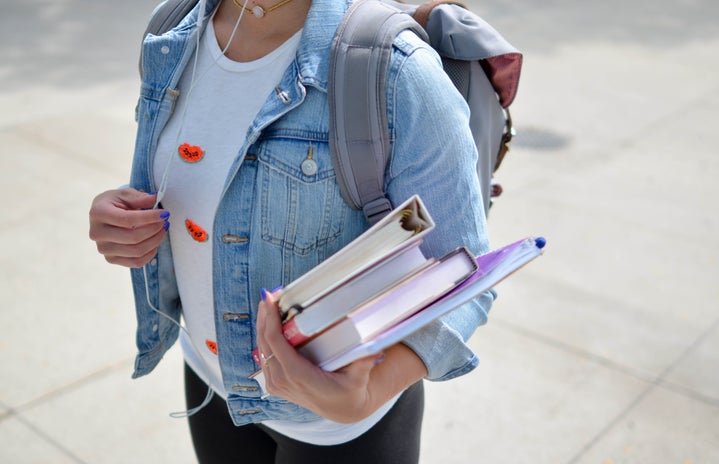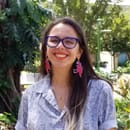This week at Her Campus UPR, it’s Deaf Community Awareness Week! To kick the week off, we’re bringing awareness to a student organization everyone should know out. The Comunidad Universitaria en Apoyo a la Cultura del Sordo is a student organization that brings support to the Deaf Community within the University. You should definitely look them up and get involved, and I highly suggest that you start to learn sign language. So, we sat down with President Daniela González and Treasurer Alberto Bernabe to discuss the organization and their goals.
Her Campus at UPR: What does CUACS stand for?
Alberto Bernabe: CUACS are the initials, in Spanish, of the student organization called Comunidad Universitaria en Apoyo a la Cultura del Sordo, or University Community in Support of Deaf Culture.
HC UPR: What is your mission statement?
Daniela González: Our mission is to educate our campus regarding the Deaf community, their language, their rights, and their culture. Our goal is to also create awareness of the Deaf Community in Puerto Rico. We want to reduce and hopefully eliminate their marginalization. We want to promote inclusion and accessibility. We also work to support Deaf students who are finishing high school. We encourage them to continue their studies and to aim for higher education. We want to motivate and to counsel them in their life goals. We achieve all of these through workshops, conferences, and volunteer work with Colegio San Gabriel (a school for Deaf children), and participating in different events within the Deaf community.
HC UPR: How did the CUACS organization come to be? What is your inspiration?
AB: CUACS was developed in the Faculty of Education at the University of Puerto Rico, Río Piedras Campus by the students of the Bachelor program in Special Education, with an emphasis in Deafness.
Students interrupted professor Rafael (Rafi) Ortiz during the course EDES 4115 (Teaching and lecture to deaf and hard of hearing students) because they wanted to make a change within the university. They wanted inclusivity between Deaf and hearing individuals, which is the inspiration and mission of CUACS.
In order to create the organization, the group of students spread the word to other students of that program, and they organized the CUACS council. CUACS was founded on October 16, 2016, and on November 2, 2016, it was recognized as an official student organization of the UPR-RP.
HC UPR: What are the opportunities you see for this organization in the next year?
DG: Thankfully, more and more people are aware of the existence of the Deaf Community in Puerto Rico. People are opening up to them and including them within society through the learning of sign language and gaining more knowledge of Deaf culture. This has a positive impact on the Deaf Community itself. They feel more welcome in everyday life.
We hope to see more Deaf students applying for different universities in Puerto Rico, so as a result, we will keep developing more activities and workshops to educate the rest of the hearing individuals in our campus about Deaf students.
Later, after people of hearing graduate and immerse ourselves in the real world, it is very likely to stumble upon a Deaf person from time to time, especially in different career areas. Thus, having knowledge about how to communicate with a Deaf person is vital. For us, this is a huge opportunity because it is the epitome of everything we stand for as an organization and as activists for the rights of people with different capacities. We plan to keep developing workshops for next year. We want to collaborate with different faculties and organizations. We want to host bonding activities with Deaf people, and entertainment events. Of course, we will never cease to volunteer in whatever the Deaf community and Colegio San Gabriel needs from us.
HC UPR: What is a typical day like in CUACS?
DG: A typical day in CUACS starts with receiving a message through our What’s App group chat. Usually, it’s from one of our members sharing a video, an article or a picture regarding the Deaf community in Puerto Rico. They’re usually positive news, so we celebrate and talk about that achievement that the Deaf community has worked very hard for. If we have an event, we always receive the support from CUACS members and they help us before the event starts.
In terms of events, members always proudly wear their CUACS shirt. They participate in the event and practice sign language with our Deaf members. Members laugh from time and time, and in other moments, they’ll just be deeply concentrated in the conversations. Pictures are taken, videos are recorded, and memorable moments are captured. They’re always sent to the group chat, so they can be shared with the rest of the members. Our typical day is usually quite simple, but there’s always a deep understanding and appreciation for the Deaf community. Days after, they’ll be very eager to participate in more events.
HC UPR: How does CUACS encourage personal and professional growth?
DG: We encourage personal and professional growth through the development of different abilities, such as communication, empathy, understanding, and patience. There are all qualities that serve huge importance in the future of students, especially in their careers. We work to educate students on the abiding laws that support Deaf people, and how those laws are implemented in different spaces, such as in workplaces, hospitals, courts, and theatrical events. We teach them how to communicate with Deaf people if sign language is not known, and that is resourceful when meeting a Deaf person, especially in the workplace. We also explain how the dynamics with a sign language interpreter function. And on a more personal note, we encourage our members to recognize Deaf people for the cultural identity that unites them, not the medical point of view that emphasizes the lack of hearing, but rather the gain of a new way of being. Learning to see people who are different from us on the terms they want to be seen is a big factor that shows a sense of maturity and personal growth.
HC UPR: What do you like about working for this organization?
AB: I love knowing that the members have broad opportunities to create awareness of the Deaf and their needs in a society full of hearing individuals. Also, that one can actually work towards inclusion because CUACS offers a variety of volunteer activities accessible for anyone who wants to help out.
DG: We are creating a more open society that is different from other generations, where Deaf people were pitied, seen as less than, underestimated, not considered for jobs, misunderstood, and seen as dumb. Now, we are demonstrating how Deaf people are equal to the rest of the hearing individuals of this world, the only difference is that they can’t hear, and that doesn’t stop them from living life to the fullest.
HC UPR: Are there any activities for this semester, and what do they consist of?
DG: Oh yes! We do have great activities this semester. The soonest event we have is a collaboration with a student organization called Medlife UPRRP throughout the last week of March. On Tuesday, March 26, we will have a movie night with the theme of the Deaf community. Then, on March 27, we will offer a conference/workshop based on the Deaf community and sign language. We are also gathering donations for Colegio San Gabriel, particularly school items and hearing aid batteries (675 and 312). You can stay tuned for these events by checking out Medlife UPRRP and CUACS’s Facebook pages, where are the information on current and future events are shared.
HC UPR: Is there any way that non-members can contribute and help the organization?
DG: Of course! All of our events are open to all students of our campus, not just for members of CUACS. Non-members can contribute by assisting in our events and taking part in the workshops we give. Gaining knowledge of the Deaf community will be a huge help not only to our campus but to society itself. Non-members are also welcome to volunteer to the different places we go to. And lastly, they can also contribute by sharing promotions we have on different events, workshops, and conferences; spreading the word will be very beneficial.
HC UPR: Why do you think that encouraging sign language is necessary for everyone to learn or know about it?
AB: Not only it is necessary to encourage people to learn sign language, but it is also important and necessary for them to actually learn the culture of the Deaf community or have a general knowledge about it. It is impossible and highly unrecommended to learn sign language without learning Deaf culture. Here, in Puerto Rico, there are thousands of Deaf and hard of hearing individuals who struggle every day in a society where the majority are hearing people. They may struggle and encounter communication barriers because most people do not know sign language. At the very least, you should have some basic knowledge about how to interact with a Deaf person. However, by learning sign language, Deaf culture, and interacting with the Deaf, we are creating inclusion and accessibility. If we take for example the UPRRP, there are thousands of students pursuing a degree. But most of them do not know sign language nor Deaf culture. Consequent to this, Puerto Rico will continue to have professionals that may provide services that are not accessible to Deaf and hard of hearing individuals. This is the reason to learn sign language, and Deaf culture: to reach accessibility and make a difference.
HC UPR: What advice would you give to the “hearing” world in regards to your organization’s mission?
DG: Our most important advice to the hearing world in regard to our mission is to always recognize and expect the presence of the Deaf community in our society. Of course, we encourage people to learn sign language, provide sign language interpreters and to know about Deaf culture, but it is true that not everyone will have that knowledge, and not everyone has the means to learn a language or hire an interpreter, due to a variety of reasons. We fully understand that. But we ask people to at least consider them in everyday life because they have been forgotten for way too long. Changes don’t occur from one day to another, it takes a lot of time, but it all begins with a simple thought. What we want from those thoughts is that they keep growing into actions, and then a part of everyday life.
Thank you, Daniela and Alberto. We’re super grateful for the opportunity. Please go support the organization tomorrow! Their movie screening will be fantastic! So, things to do: learn sign language and become a member! You can find them on Facebook.


